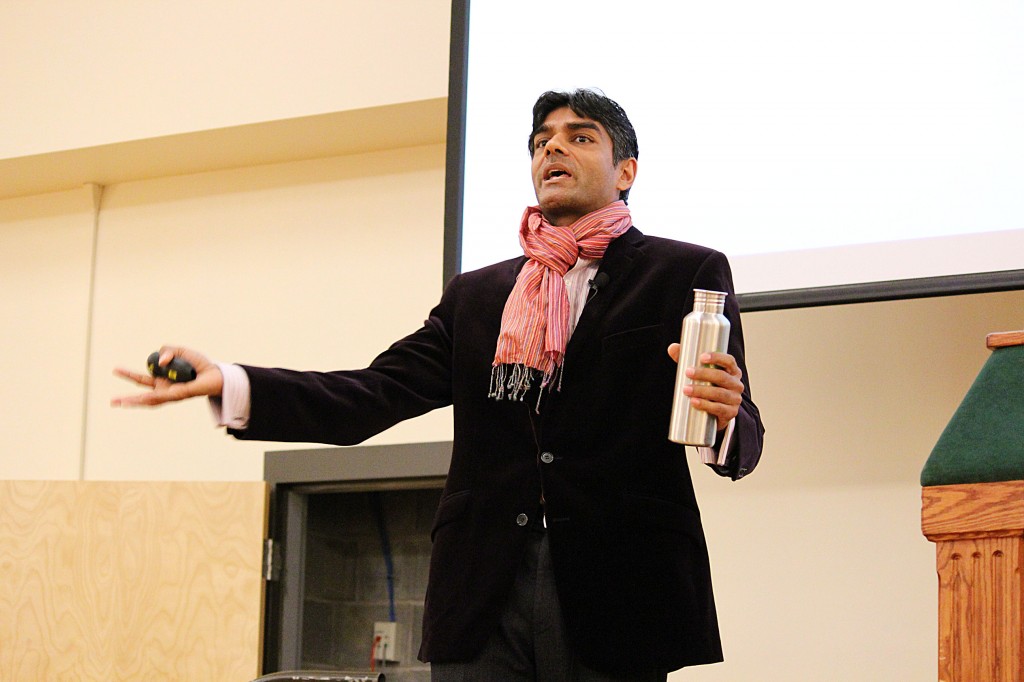
Nearly one billion people in the world are undernourished, yet nearly two billion people are overweight. This dichotomy is what Raj Patel shared with an audience of nearly 300 Binghamton University students and faculty members Wednesday night.
Patel, a professor at the University of Texas at Austin, gave his talk titled “Stuffed and Starved: The Hidden Battle for the World Food System” in the Mandela Room. The event, which was coordinated by the Division of Research, was a part of Research Days, a showcase of research and creative work conducted by students and faculty across campus.
In his talk, Patel discussed failures of the global food system and places for improvement.
“We live in a country where one in two children, at some point in their life, will need federal assistance to be able to fight off hunger,” Patel said. “It doesn’t seem okay to me to be living in a country where that sort of thing happens and not have an understanding about why.”
According to Patel, availability of cheap food is part of a cycle of inexpensive labor and standard of living. In order to bring about change and break the cycle, environmental and agricultural factors must be addressed. Increasing wages allows people to buy better quality food, but the only way to convince people to buy better food is to increase the overall standard of living.
Patel traced the issues of the modern food system back to the 18th century, when poor workers living in cities needed low-cost food. He discussed Malawi, a country where changing agricultural techniques such as experimenting with different crops and collaboration, as well as shifting ownership dynamics between land owners and workers, has decreased malnutrition.
In Malawi, Patel said, men and women were able to create a community where it was possible to talk about the value of nutrition and share successful farming techniques without fear of oppression.
“The solution in Malawi is about making sure there is more food and that it gets distributed better,” Patel said. “The solutions on the streets of New York are about making sure that you break the chains of cheap food, cheap care, cheap work.”
According to Janice McDonald, director of the Office of External Scholarships, Fellowships and Awards, this year’s theme was sustainability. She said Patel’s work on food sustainability and food systems fit in with the emphasis on nutrition worldwide.
“I think it’s something a lot of people can relate to and you can look at it from so many different ways,” McDonald said. “As a scientist, as a social scientist, it has so many different ramifications.”
According to Sabrina Scull, a senior majoring in environmental studies, Patel’s talk was an eye-opener to the effect of minority oppression on world hunger.
“We do not need to lead with a heavy crusade to spread environmental justice,” she said. “Instead, [we need] to help by starting small and acting from a place of love to get the ball rolling towards change.”
Gina Kim, a senior majoring in integrative neuroscience, came to the talk with the BU Food Sustainability Group. While she said that students at the University are privileged to have good food around them, she realized that might not be the case in other communities.
“Tying it all together, it’s about how do you promote local food, cost effective ways to eat so that everyone can afford it,” Kim said. “And I think Raj did a wonderful job addressing all those aspects.”


